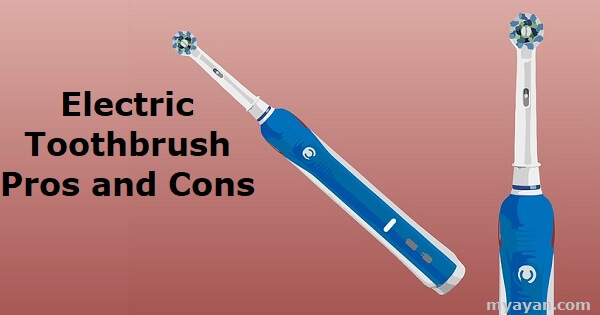Your teeth are what define your smile and your oral health. A good oral care routine is required to keep them healthy and strong. Electric toothbrushes are one of the most popular tools used to have healthy and bright teeth. As you must have seen actors using one in TV commercials and movies, these brushes are becoming increasingly popular. But what do dentists have to say about electric toothbrushes when providing better dental care? The advantages and disadvantages of Electric toothbrushes investigate further.
Electric toothbrushes have several unique and supportive features, as you may easily fit them into your daily routine. Consider the following advantages of using electric toothbrushes:
Electric toothbrushes have features that make it easier to clean teeth and gums efficiently and effectively. They have rotating or vibrating heads which helps remove plaque buildup more easily than manual brushes, and the bristles on them tend to be softer. The timer feature on these brushes lets you brush for the recommended amount of time, so you need not worry about the time.
These brushes are better equipped to remove surface stains and plaque, making your teeth look brighter and whiter. Electric toothbrushes also help you keep your gums healthy by cleaning off bacteria that cause gum diseases.
Although Electric toothbrushes tend to be more expensive than manual brushes, they are cost-effective in the long run. They do not require frequent replacements like manual toothbrushes because their heads can be easily replaced, and the battery life tends to last for up to two years.
Compared to traditional toothbrushes, electric toothbrushes are a better alternative for children and people with disabilities. The automatic motion of the brush helps ensure they brush their teeth properly without missing any spots, and the automated timer ensures that they don’t over-brush.
Electric toothbrushes are effective in cleaning teeth with orthodontic appliances, including braces. Since the rotating head spins on both sides of the brackets, tiny food particles stuck between them can be easily removed.
These tools have certain benefits but like every piece of technology, comes its potential downsides. Let's have a look at the disadvantages of using electric toothbrushes.
The loud noise and vibration produced by electric toothbrushes can startle some users and even irritate people sensitive to sound. And using one can be really disturbing for you if you like quiet and peaceful mornings. Not only you, but noise can also be disturbing to people around you.
Electric toothbrushes can be difficult to hold and maneuver in the teeth and gums if you have limited dexterity due to arthritis or any other form of physical disability. Battery replacement can even become a hassle for people who do not know how to operate it.
Like all electronic products, electric toothbrushes require proper maintenance and cleaning to work effectively. If they are not maintained properly, the brushes can get damaged quickly and also lead to more bacterial buildup in your mouth.
Electric toothbrushes normally need to be recharged every day or two, which is inconvenient for some users. Some electric toothbrush models also require replacing the battery after a few months, while others come with rechargeable batteries that can last up to two years.
Electric toothbrushes are generally more expensive than manual brushes and can range from $10 to $200, depending on their features. They also require replacement heads every few months, which adds to the cost of maintenance. There are additional different equipment available in the market that comes along with the toothbrush, which obviously, costs you more.
Conclusion
Electric toothbrushes offer many advantages, but like all devices, there are some potential downsides. Electric toothbrushes may be the right choice if you're looking for a more thorough and effective way to clean your teeth. But make sure to consider the pros and cons before choosing one for your daily dental care. It's better to consult with a dentist or dental hygienist if you are not sure about it or need additional advice. Electric toothbrushes can be a great way to maintain oral health, but it's important to use the right techniques and ensure your teeth and gums remain healthy.

Electric toothbrushes can be better than manual toothbrushes because they have a rotating head that helps clean the teeth more thoroughly. They often come with timers and pressure sensors that help people brush their teeth properly.
Yes, electric toothbrushes usually require replacement heads every few months. This helps to keep the bristles clean and effective, as well as preventing bacterial buildup.
Electric toothbrushes can be worth it because they offer a more thorough and effective way to clean your teeth. However, you should also consider the cost of an electric toothbrush which may vary from brand to brand. Some people may also find manual brushing easier or prefer the feeling of a traditional brush in their mouth.
Using an electric toothbrush is similar to using a manual one. Make sure to brush for two minutes twice daily using circular or back-and-forth motions. Hold the bristles at a 45-degree angle against your gums and slowly move them around the surface of each tooth. Replace the brush head every three months for optimal results.